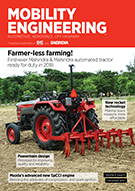Research Report
Unsettled Topics Concerning Airworthiness Cybersecurity Regulation
2020-08-31
EPR2020013
Its extensive application of data networks, including enhanced external digital communication, forced the Federal Aviation Administration (FAA), for the first time, to set “Special Conditions” for cybersecurity. In the 15 years that ensued, airworthiness regulation followed suit, and all key rule-, regulation-, and standard-making organizations weighed in to establish a new airworthiness cybersecurity superset of legislation, regulation, and standardization. ...In the 15 years that ensued, airworthiness regulation followed suit, and all key rule-, regulation-, and standard-making organizations weighed in to establish a new airworthiness cybersecurity superset of legislation, regulation, and standardization. The resulting International Civil Aviation Organization (ICAO) resolutions, US and European Union (EU) legislations, FAA and European Aviation Safety Agency (EASA) regulations, and the DO-326/ED-202 set of standards are already the de-facto, and soon becoming the official, standards for legislation, regulation, and best practices, with the FAA already mandating it to a constantly growing extent for a few years now—and EASA adopting the set in its entirety in July 2020.



